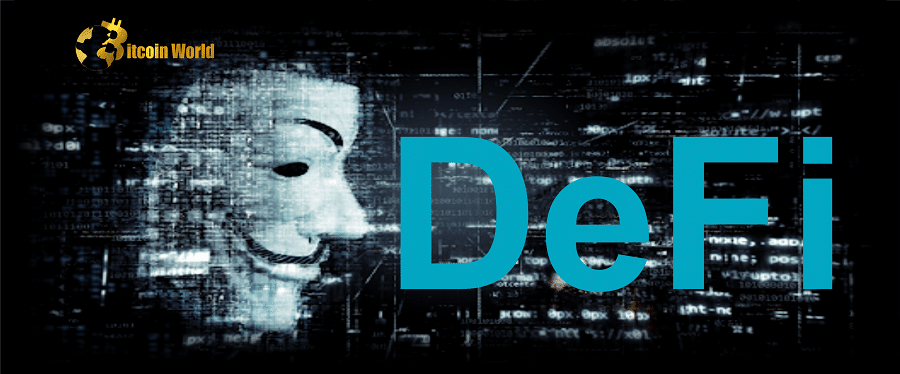Decentralized Finance (DeFi) has emerged as a revolutionary sector within the cryptocurrency industry, offering innovative financial solutions and disrupting traditional systems. As the DeFi space continues to evolve and gain traction, investing in DeFi coins can present unique opportunities for investors. In this blog post, we will explore five prominent DeFi coins that are worth considering for investment in 2023, based on their potential, performance, and adoption within the DeFi ecosystem.
Ethereum (ETH):
Ethereum is the foundational blockchain for most DeFi applications and protocols. As the secondlargest cryptocurrency by market capitalization, Ethereum serves as the backbone for decentralized exchanges (DEXs), lending platforms, yield farming, and more. With the upcoming Ethereum 2.0 upgrade and its focus on scalability, Ethereum is poised to maintain its dominant position in the DeFi space.
Aave (AAVE):
Aave is an Ethereum-based decentralized lending and borrowing system. It allows users to lend their cryptocurrencies and earn interest or borrow assets by collateralizing their holdings. Aave’s robust ecosystem, solid track record, and constant innovation make it a promising investment option within the DeFi landscape.
Uniswap (UNI):
Uniswap is a decentralized exchange protocol and one of the pioneers of automated marketmaking (AMM). It facilitates trustless and permissionless trading of various ERC-20 tokens directly from users’ wallets. Uniswap’s popularity, liquidity, and user-friendly interface have positioned it as a leading decentralized exchange, making UNI tokens an attractive investment opportunity.
Chainlink (LINK):
Chainlink is a decentralized oracle network that connects smart contracts with real-world data, enabling DeFi applications to access off-chain information. Chainlink’s reliable and secure oracle infrastructure has gained widespread adoption within the DeFi ecosystem, making LINK tokens a key player in the provision of decentralized data feeds.
Synthetix (SNX):
Synthetix is a decentralized platform that allows users to create and trade synthetic assets, such as cryptocurrencies, commodities, and traditional stocks, on the Ethereum blockchain. SNX tokens are staked as collateral to issue and back these synthetic assets. With the growing demand for synthetic assets and the continuous development of the Synthetix ecosystem, SNX presents an intriguing investment opportunity.
Quick Reminder: What Is DeFi?
DeFi refers to a set of financial applications and protocols built on decentralized blockchain platforms, primarily Ethereum. It aims to remove intermediaries and create a transparent and accessible financial system that operates autonomously without the need for traditional banks or financial institutions.
Core Principles Of DeFi:
DeFi is founded upon several fundamental principles, including transparency, trustlessness, open-source code, permissionless access, and composability. These principles ensure that financial transactions and interactions can take place directly between parties, with no centralized authority or control.
Key DeFi Applications:
Users can trade cryptocurrencies directly from their wallets via DEXs, doing away with the necessity for middlemen. They leverage smart contracts to provide liquidity and enable peer-topeer trading.
- Lending and Borrowing Platforms:
DeFi lending platforms enable individuals to lend their digital assets and earn interest, while borrowers can use their holdings as collateral to secure loans without the need for credit checks or traditional collateral.
- Stablecoins:
Stablecoins are cryptocurrencies designed to maintain a stable value, often pegged to a fiat currency like the US Dollar. They provide stability within the volatile cryptocurrency market and enable users to store value and conduct transactions with reduced price volatility.
- Yield Farming:
Yield farming involves utilizing DeFi protocols to optimize returns on digital asset holdings. Users can lock their assets in liquidity pools or participate in liquidity mining programs to earn additional tokens as rewards.
Advantages Of DeFi:
Compared to conventional financial systems, DeFi has a number of benefits, including:
- Accessibility:
DeFi provides financial services to the unbanked and underbanked populations, enabling them to participate in the global economy.
- Lower Costs:
DeFi eliminates the need for intermediaries, reducing transaction fees and lowering costs associated with financial services.
- Increased Financial Control:
Users have full control over their assets and can participate in financial activities without relying on centralized entities.
- Programmable Money:
DeFi allows for the creation of programmable money through smart contracts, enabling the automation of financial transactions and the development of innovative financial products.
Challenges And Future Outlook:
While DeFi presents immense potential, it also faces challenges such as scalability, regulatory uncertainty, and security vulnerabilities. However, ongoing technological advancements, increased adoption, and regulatory developments are paving the way for a more robust and mature DeFi ecosystem.
Opportunity For Investors:
The DeFi sector is continuously evolving, and investing in promising DeFi coins can be an exciting opportunity for investors seeking exposure to the innovative world of decentralized finance. Ethereum, Aave, Uniswap, Chainlink, and Synthetix are among the top DeFi coins that have demonstrated strong potential, adoption, and utility within the DeFi ecosystem. However, it is important to remember that the cryptocurrency market is volatile, and thorough due diligence is crucial before making any investment decisions.
Disclaimer: The information provided is not trading advice, Bitcoinworld.co.in holds no liability for any investments made based on the information provided on this page. We strongly recommend independent research and/or consultation with a qualified professional before making any investment decisions.




